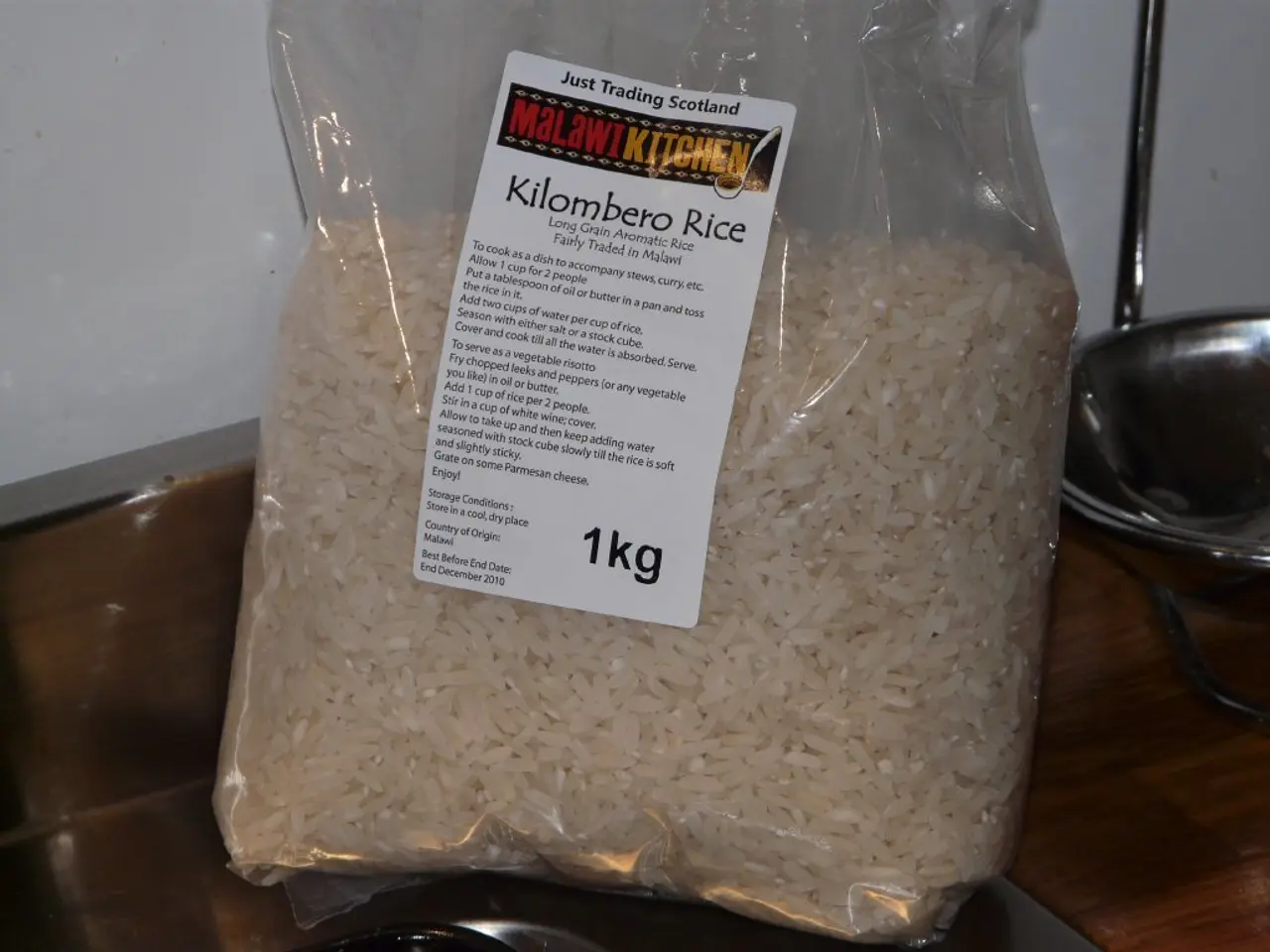Potential Easing of Non-Basmati Rice Export Restrictions: Pralhad Joshi Discusses Possible Changes in Policy
The Indian government is contemplating a relaxation of the export ban on non-basmati rice, aiming to reduce domestic stockpiles, boost rice availability for exports, and support ethanol production. This potential easing comes amid a large surplus of rice stocks and an above-average monsoon forecast for 2025, which is expected to lead to a bumper crop.
The initial ban, imposed in 2023, was a protective measure to safeguard domestic food security due to unusual patterns of precipitation, flooding in key rice-producing regions, and a general increase in product prices. However, given the stock surplus and easing food inflation, there is momentum toward loosening these curbs.
For farmers, relaxing the export ban could mean increased demand for non-basmati rice varieties, potentially leading to better prices and improved incomes. As the world's biggest rice exporter, India is poised for another strong monsoon, ensuring good crop yields. This could provide farmers with access to international markets, potentially securing better prices for their produce.
Exporters stand to benefit from improved access to non-basmati rice stocks, increasing export volumes and revenue. However, they face global challenges, including competition and tariffs (such as prospective US tariffs on some Indian agricultural products), which may affect the scale of export expansion.
The relaxation of the export ban could help stabilize global rice prices, which recently fell to eight-year lows due to improved global supplies. Increased exports from India might intensify price competition globally, impacting competitors like Thailand, which is actively strategizing to promote its own rice exports amid market pressures.
The government must carefully evaluate the potential risks and take necessary measures to prevent undesirable outcomes from lifting the ban. To prevent negative effects on small and marginal farmers, targeted support may be necessary to help them access the market. Rice farmers may also receive immediate financial assistance due to the potential relaxation of the export ban.
Union Minister Pralhad Joshi has hinted at a possible relaxation of India's non-basmati rice export ban. The relaxation of the ban would allow India to continue meeting global rice demands, particularly in regions that heavily depend on imports. Exporters would be able to re-establish connections with global buyers, regaining lost business opportunities.
As the situation continues to develop, the agricultural farming sector will be closely watched by stakeholders both within India and around the world. India's re-entry into the export market could lead to adjustments in global rice prices, affecting both importing and exporting countries. The potential relaxation of the ban demonstrates that the government is aware of the issues raised by farmers and exporters and is prepared to reassess the situation as conditions change.
Farmers may find an increase in demand for their non-basmati rice varieties, potentially leading to better prices and improved incomes due to the possible relaxation of the export ban. In the business sector, exporters can anticipate increased revenue from boosted volumes of non-basmati rice exports.




